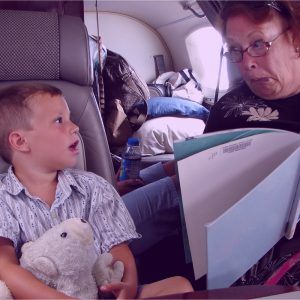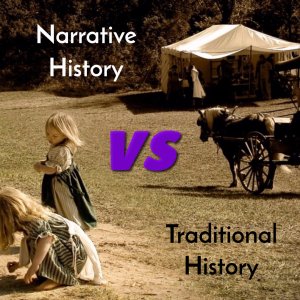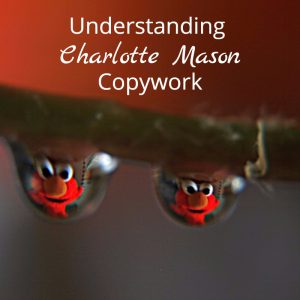Charlotte Mason
The Charlotte Mason method/approach/style adheres to principles designed by Charlotte Mason that emphasize a literature based, or “living books,” approach to homeschooling. Charlotte Maria Shaw Mason was a British educator who’s impact on education is still felt today. She actuated the shift from utilitarian-based education idea-central education.
Education is NOT about:
- Job training
- Getting good grades
- Being accepted into the best university
- Passing every exam
- Memorizing facts for the sake of recitation
Instead, the Charlotte Mason approach values classical ideals.
Education is an atmosphere, a discipline, and a life.
Charlotte Mason vs Other Methods
Don’t confuse the Charlotte Mason method as being synonymous with Classical Education. Indeed, there is overlap, but there are also several differences.
Many people also notice similarities between Charlotte Mason and unschooling. The two methods have similarities, but they are vastly different. People notice similarities because Charlotte Mason encourages free time and uses some informal teaching methods. Just like many unschoolers, Charlotte Mason homeschoolers often love the outdoors.
However, Charlotte Mason schooling is teacher-directed, not child-led. When children in a Charlotte Mason household are given free time they have the opportunity to pursue any (and all) of their personal interests. It is also worth pointing out that this love for the outdoors does not mean Charlotte Mason is a back-to-basics philosophy.
Two subjects in the Charlotte Mason curriculum are taught in unison. This reminds many homeschoolings of a Unit Study. However, Charlotte Mason is not a unit study method.
What is the Charlotte Mason Method?
I Am, I Can, I Ought, I Will.
This is a quick summary of Charlotte Mason’s teaching style and method by subject. Charlotte Mason approached all subjects with the goal of nurturing curiosity and encouraging a true sense of wonder.
The Bible: Biblically based knowledge of God is the first and most important educational knowledge.
History: Real source documents, biographies, literature, and history books are used to teach chronological history.
Literature: Books and literature from the same historical time period are used to teach literature in conjunction with history.
Language arts: Many techniques are used to teach language arts, but they are all rooted in some type of narration. Narration can be
- Oral recitation narration through
- Dictation
- Copy work and transcription
Science: Charlotte Mason was a huge advocate for science because she understood it as discovering God’s revelation. Young children learn to observe God’s creation, nature. In fact, children ages 6 and below spend almost all of their time outdoors.
Charlotte Mason lessons
Lessons are short, normally just 10-20 minutes for early ages. The child’s focus is always on quality attention and execution. Quality over quantity. Children are always encouraged to do their best. Mason emphases confidence at an early age.
Free Charlotte Mason Curriculum
AmblesideOnline is the ultimate free online curriculum resource for Charlotte Mason homeschooling. The AmblesideOnline curriculum was developed using Charlotte Mason’s classically-based principles.
AmblesideOnline is a free homeschool curriculum that uses Charlotte Mason’s classically-based principles to prepare children for a life of rich relationships with everything around them: God, humanity, and the natural world. AmblesideOnline is volunteer-driven and also provides support groups.
The best part about AmblesideOnline is the huge digitized collection of original Charlotte Mason materials.
8 Read-Aloud Tips for Your Fidgeting Child
Posted in Charlotte Mason, Homeschooling on November 14, 2018

Do your kids have a hard time sitting still during the read-aloud time? You are in good company. Most of our kids have trouble sitting for five minutes, so sitting still for 20 minutes or longer seems like an impossibility. Let me tell you a secret - it's not impossible, and working on your child's Read More »
How We Use Tea Time in Our Homeschool
Posted in Charlotte Mason, Home School Creative Commons Resources, Homeschooling on November 13, 2018
Tags: Homeschooling Tips, Tea Time

The name tea time might either create lovely pictures in your mind or shrouds of fear and dread. When I initially learned about the concept of tea time, I had no intentions to incorporate the practice into our homeschool. However, as I began along my Charlotte Mason walk, the concept of morning time was brought Read More »
Narrative-style History versus Traditional History Textbooks
Posted in Charlotte Mason, Homeschooling on October 22, 2017

When I was a child, my grandpa would sit and tell me stories of his life. He was born in 1904 and the stories he told were a part of our world’s history. I loved them! I would sit and listen as long as he talked. I probably learned more about the early 1900’s from Read More »
Charlotte Mason Copywork 101: Understanding and Implementing
Posted in Charlotte Mason on September 7, 2017

Copywork may be the most misunderstood aspect of a Charlotte Mason Education. When I first heard the term copywork, I pictured those first-grade handwriting worksheets, and I thought, “That’s boring. What’s so special about handwriting worksheets?” After I began to learn about what copywork actually consisted of, I understood what a valuable tool it can Read More »
Understanding Nature Study - Charlotte Mason Method
Posted in Charlotte Mason on September 6, 2017

Hardly a day goes by that my children don’t point out some natural wonder to me. Whether it’s a butterfly or a leaf that’s shaped like a heart, they have been trained to “see” nature. We give credit for this training to nature study. I had never really heard of nature study before and would Read More »






